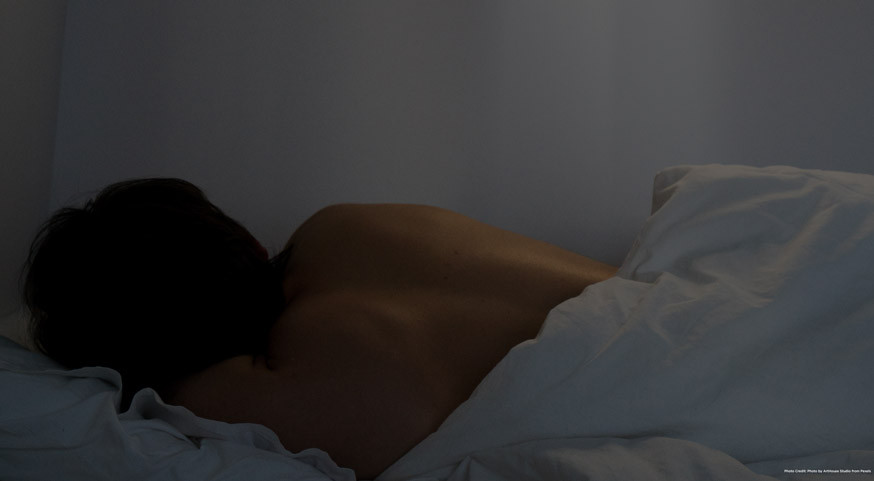Posted by Aline Martin O'Brien on Mar 25, 2021
Sleep in Maximum Darkness for a More Serene Sleep
Light, whether it comes from the outside (natural lighting, public lighting or advertising) or from the inside (electronic devices, night lights), is harmful to sleep. Light disrupts the secretion of melatonin in the evening and can delay falling asleep; during the night, light can also activate the arousal systems of the brain and decrease the quantity, depth and quality of sleep. No matter how comfortable your bedroom and bedding might be, too much light can spoil your sleep before you get started.
This is a modern problem: since the advent of electricity and especially now, with the ubiquitous, always-on electronic devices, it is increasingly difficult to sleep in complete darkness. With light from the alarm clock, the smoke alarm, the power strip on the floor, and the various other night lights, bedrooms are often bathed in a soft half-light and are never in complete darkness.
The human body, like that of all animals, has evolved to obey circadian and lunar cycles; during the day we are active and at night we sleep. And while bedrooms used to be naturally dark, this is far from the case today. The frustration of being snuggled deep in your warm bedding or winter comforter but being unable to find your sleep can be avoided.
Darkness: the essential element for a good sleep
So what to do? It's simple: do your best to eliminate all light sources from the bedroom. First of all, you need to properly cover the windows -- especially if you live in the city, where there are many sources of light pollution (neon lights, headlights, lampposts, etc.). So try closing the shutters and using thick curtains, shutters, and/or quality blinds.
Then, turn off the television and all electrical devices that produce light. Although this light may seem quite acceptable in the daytime, in complete darkness, you will quickly realize that it is not. A simple television standby light, for example, produces enough light to disturb the body when you fall asleep. Of course, you should put away computers, tablets and other smart devices well before going to bed. Studies have established that screen use at night is responsible for a drop in melatonin, the sleep hormone.
As we all know, the most important factor in restful sleep is adequate bedding, such as a plush mattress pad, a cloud top feather bed and a comfortable hotel pillow. Once these essentials have been acquired, it is time to go further: these tips should therefore be taken with the utmost seriousness even if, at first glance, they may seem exaggerated.
More than noise, stray lights and elevated temperatures are leading disruptors of sleep
The causes of sleep problems are not always evident. When people are asked about what disrupts their sleep the most, it is noise that is most often mentioned. And for good reason: nearly one in three people are bothered by noise on weekdays or weekends. However, two other sleep disruptors deserve more attention than noise, especially since they are relatively easier to control: light and ambient temperature.
Without our even being aware of it, light is a powerful synchronizer that constantly resets our internal clock on the 24-hour cycle. A study carried out in 2005 showed that a light of a little more than one lux, which corresponds to the luminosity emitted by a candle located one meter away, was enough to disrupt our natural 24 hour cycle and the circadian rhythm. It is therefore easy to understand that prolonged exposure to light at the end of a day delays falling asleep comfortably on your down pillow and that, on the contrary, early exposure to light in the morning advances awakening.
The second easily controlled variable that affects sleep is the ambient temperature of the bedroom. 65-68 degrees Fahrenheit is optimal. Cooling sheets, cooling pillows and cooling bedding are available for those in warm weather areas.
While achieving a full blackout is a challenge, you should control what you can: the light, the temperature, and the comfort of your bedding and bedroom. Following these tips will help you make real progress in your search for a good night’s sleep:
Photo Credit by ArtHouse Studio from Pexels

